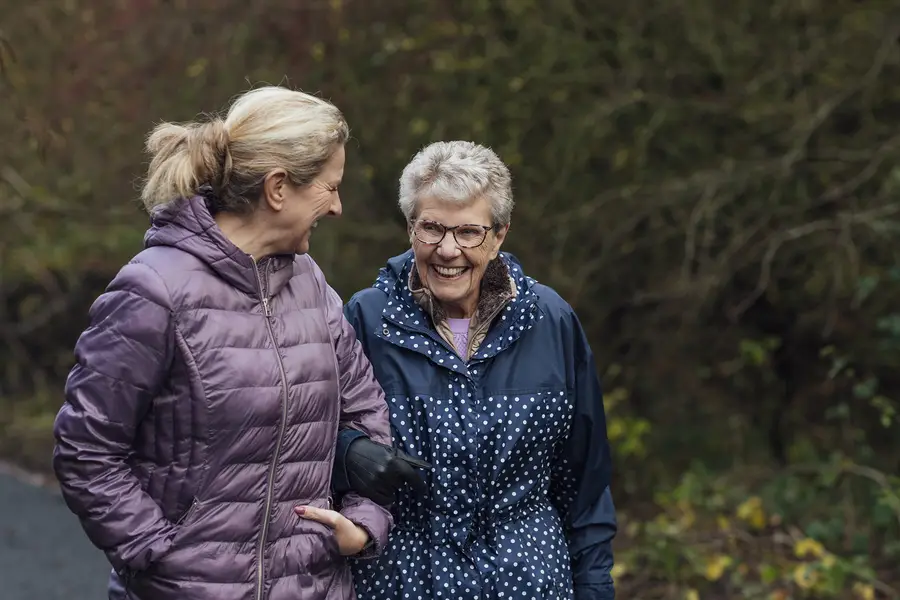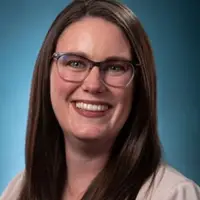
November is National Family Caregivers Month, a time to honor and celebrate the people who dedicate years of their lives to caring for family members with dementia. Family caregivers are ubiquitous in today’s dementia care system with more than 11 million Americans providing unpaid care to people living with dementia. These caregivers often navigate challenging and emotional journeys, which requires resilience and commitment.
The Heart of Caregiving for Loved Ones with Dementia
Dementia caregivers provide essential support to their loved ones. It is estimated that family caregivers of people living with dementia provided 18.4 billion hours of care valued at $346.6 billion in 2023. They play a crucial role in bridging the gap between professional home care services and the needs of people living with dementia, enabling them to continue living at home and avoiding or delaying a move to a residential care facility.
Family caregivers manage daily tasks, including household chores, preparing meals, running errands, providing transportation, and managing finances. Dementia caregivers also assist with personal care, including bathing, dressing, feeding, transferring, and toileting. In addition, they ensure safety, manage behavioral symptoms, and offer emotional comfort, all while balancing their own lives and responsibilities. This level of care requires patience, empathy, and a deep understanding of the unique needs of those living with dementia.
The Faces of Dementia Caregiving
Dementia caregivers come from diverse backgrounds; however, there are some characteristics that are common among them. Women make up approximately two-thirds of dementia caregivers; adult daughters provide the largest share of unpaid care hours. Approximately one-quarter of these caregivers are simultaneously caring for a child at home and are part of the sandwich generation of caregivers – caring for both their parents and in-laws as well as their own children. In some cases, children under the age of 18 serve as caregivers for grandparents and parents with young onset dementias. Spouses are also dementia caregivers, and it is more common for wives to provide care than husbands.
The Challenges and Benefits of Family Caregiving
Caregiving for someone with dementia comes with several challenges. The progressive nature of the disease means that caregivers must constantly adapt to new behaviors and symptoms. This can be emotionally taxing, as they witness the gradual decline of someone they love.
Additionally, the physical demands of caregiving can lead to exhaustion and burnout. Nearly 60% of dementia caregivers report high to very high emotional stress and nearly 40% of dementia caregivers report high to very high physical stress due to caregiving. Despite these challenges, caregivers continue to provide support for a significant amount of time, with over half providing care for four or more years.
Dementia caregivers also report positive aspects of their caregiving role. One study found that the four main positive aspects of dementia caregiving include: a sense of personal accomplishment and gratification, a stronger relationship with their loved one, an increase in family cohesion, and a sense of personal growth.
The Importance of Support for Family Caregiving
It’s crucial to recognize that caregivers need support too. At the national level, the Administration for Community Living (ACL) developed the National Strategy to Support Family Caregivers to establish a framework that incorporates actions by the federal government as well as states, communities, health care systems and other partners in support of family caregivers. Additionally, the Centers for Disease Control and Prevention has elevated caregiving supports through the Building Our Largest Dementia (BOLD) Infrastructure for Alzheimer’s Act.
ACL also funds the National Alzheimer’s and Dementia Resource Center (NADRC), which is housed at RTI, and provides expert resources and training for dementia programs and providers that support people living with dementia and their family caregivers. Through the NADRC, RTI provides individualized technical assistance to state and community grantees that have received Alzheimer’s Disease Programs Initiative grants from ACL. The expertise of the NADRC team is broad with combined experience and knowledge related to a variety of topics including dementia-capable systems, supportive services for people living with dementia and family caregivers, evidence-based caregiver interventions, and behavioral interventions for people living with dementia. RTI’s work with ACL also includes conducting research on caregiver services, including identifying and engaging family caregivers as well as elevating the need for providing caregivers with their own care plan that includes resources, respite care, and emotional support. By investing in support for family caregivers, we can give them the tools and resources they need to continue their vital work in supporting their loved ones with dementia to live at home safely and maintain a high quality of life.
Supporting Dementia Caregivers Through Advocacy
While dementia caregivers provide individual advocacy for their loved one living with dementia, we can advocate for policies and programs that provide resources and assistance to dementia caregivers. Recently, Congress renewed two pieces of critical legislation that illustrate a national commitment to family caregivers: the National Alzheimer’s Project Act (NAPA) Reauthorization and the Alzheimer’s Accountability and Investment Act. The NAPA Reauthorization extends a strategic national plan which includes recommendations to support family caregivers such as increasing funding for respite programs, providing financial incentives for business owners to provide paid leave for caregivers, and implementing research to improve caregiver support programs. The Alzheimer’s Accountability and Investment Act ensures that Congress receives direct input from scientists at the National Institutes of Health related to the funding needed for Alzheimer’s and dementia research. By moving these, and other related, recommendations forward in our own states and communities, we are developing dementia-capable systems. We are investing in systems that are not so overly reliant on individual caregivers who may feel stressed and alone, but rather creating a network of support that is stronger and more resilient. By creating these systems, we honor the dedication and strength of dementia caregivers.
Celebrating Dementia Caregiver Contributions
During National Family Caregivers Month, let’s take the time to celebrate and honor dementia caregivers. Here are a few ways to show appreciation:
- Express Gratitude: A simple thank you can go a long way. Let caregivers know that their efforts are recognized and appreciated.
- Offer Help: Small gestures, like running errands or providing a meal, can provide much-needed relief.
- Listen: Sometimes, the best support is simply being there to listen. Allow caregivers to share their experiences and feelings without judgment.
Closing in Gratitude for Dementia Caregivers
Dementia caregivers are a pillar of support for their loved ones, providing care with love and dedication. This National Family Caregivers Month, let’s celebrate their contributions and ensure they receive the recognition and gratitude they deserve. By acknowledging their sacrifices and offering our support, we can help lighten their load and show them they are not alone in this journey.
To all the dementia caregivers out there: thank you for your incredible strength and compassion. Your dedication makes a world of difference.

